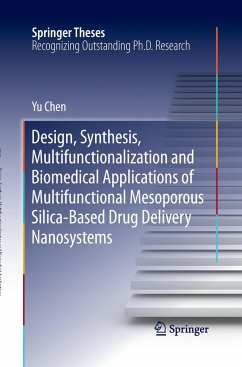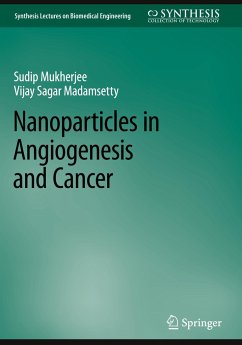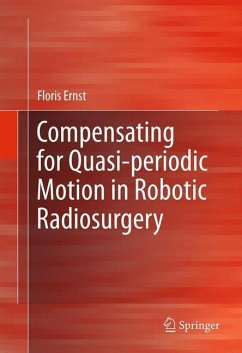
Machine Learning-Driven Rational Design in Nanomedicine
Advances in Computational Drug Delivery and In Silico Screening
Versandkostenfrei!
Erscheint vorauss. 13. Januar 2026
42,99 €
inkl. MwSt.

PAYBACK Punkte
21 °P sammeln!
This book explores how machine learning is transforming nanomedicine, with a focus on the rational design of lipid nanoparticles (LNPs) for mRNA-based therapies. Moving beyond traditional, labor-intensive workflows, it highlights AI-driven methods-such as supervised learning, data augmentation, and deep learning-for predictive modeling and in silico screening.Key topics include chemoinformatics, molecular fingerprinting, and strategies to optimize LNP transfection efficiency and biocompatibility. Real-world applications, including mRNA vaccines and personalized nanomedicines, illustrate the co...
This book explores how machine learning is transforming nanomedicine, with a focus on the rational design of lipid nanoparticles (LNPs) for mRNA-based therapies. Moving beyond traditional, labor-intensive workflows, it highlights AI-driven methods-such as supervised learning, data augmentation, and deep learning-for predictive modeling and in silico screening.
Key topics include chemoinformatics, molecular fingerprinting, and strategies to optimize LNP transfection efficiency and biocompatibility. Real-world applications, including mRNA vaccines and personalized nanomedicines, illustrate the convergence of computational biology and pharmaceutical engineering. It also addresses the ethical considerations and regulatory challenges surrounding AI-driven drug development. This book is intended for researchers, pharmaceutical scientists, computational biologists, and professionals in the biotechnology industry who seek to leverage AI-driven methodologies in nanomedicine development.
Key topics include chemoinformatics, molecular fingerprinting, and strategies to optimize LNP transfection efficiency and biocompatibility. Real-world applications, including mRNA vaccines and personalized nanomedicines, illustrate the convergence of computational biology and pharmaceutical engineering. It also addresses the ethical considerations and regulatory challenges surrounding AI-driven drug development. This book is intended for researchers, pharmaceutical scientists, computational biologists, and professionals in the biotechnology industry who seek to leverage AI-driven methodologies in nanomedicine development.












